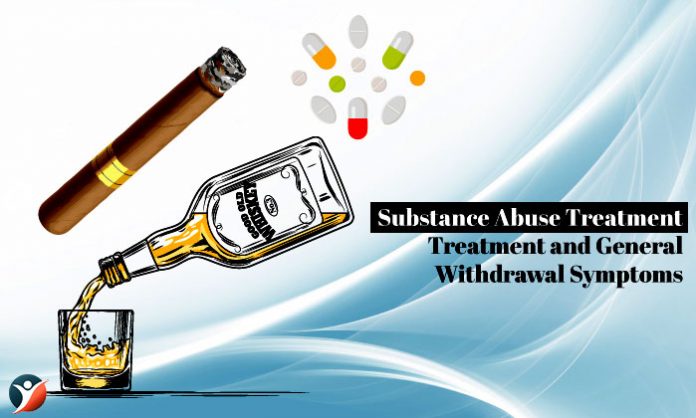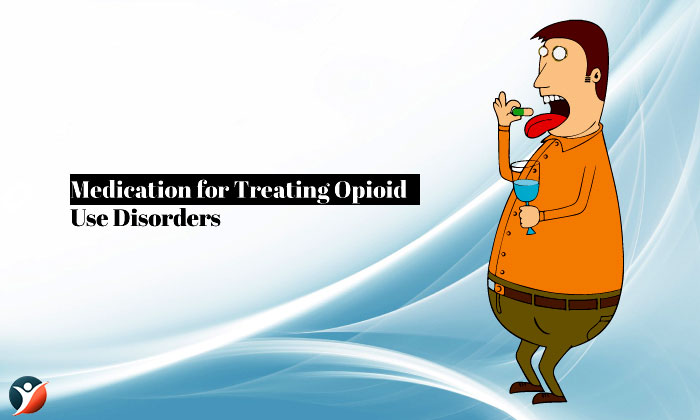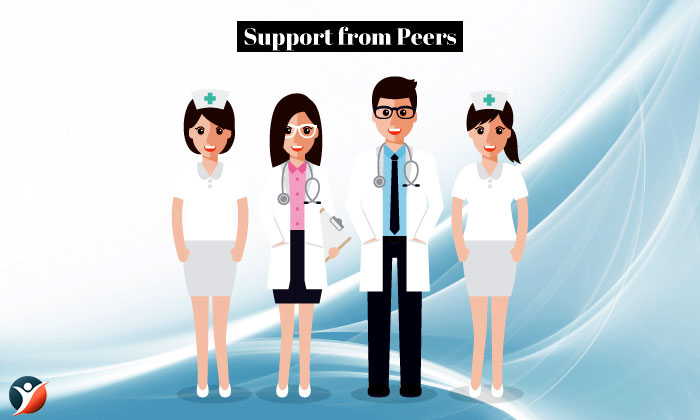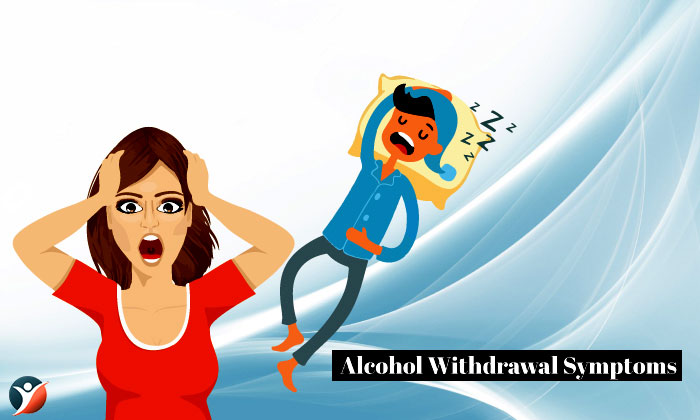
Substance abuse is a major health concern all across the globe, with millions of people frequently abusing alcohol and various other substances. Withdrawal happens as our brain works almost like a spring when we are dealing with an addiction. Substance abuse including alcohol abuse is almost similar to the brain depressants that significantly push down this spring. These suppress production of important brain neurotransmitters such as noradrenaline. When you discontinue using these drugs or alcohol, your brain considerably rebounds and produces a surge of adrenaline which leads to multiple withdrawal symptoms. Read on to know treatments and withdrawal symptoms as a result of substance abuse.
Table of Contents
- Treatment Options Available for Substance Abuse
- General Withdrawal Symptoms Due to Substance Abuse
- Conclusion
Treatment Options Available for Substance Abuse:
Because each drug is different. Some drugs cause major physical withdrawal symptoms (such as alcohol, tranquilizers and opiates) while as certain drugs cause very little physical withdrawal, but more emotional withdrawal symptoms (cocaine, ecstasy and marijuana). You must also remember that every person experiences a different kind of physical withdrawal. You might experience just a few physical withdrawal symptoms. However, this doesn’t indicate that you are not addicted, rather you might experience more of an emotional withdrawal due to substance abuse.
Let’s learn about the various treatment options and services available for helping people who indulge in substance abuse.
The treatment for substance abuse comprises several service components, as mentioned below:
- Individual counseling
- Group counseling
- Inpatient and residential (rehab) treatment
- Outpatient treatment
- Partial hospital sessions
- Case management
- Care Management
- Medications
- Recovery support services
- 12 step fellowship
- Peer support
A person who is accessing a treatment for substance abuse might not be requiring all of these components, but each one of these plays a crucial role. These systems are integrally embedded in a much larger community. The support which this community provides is really important for the recovery of people who are struggling with substance abuse.
1. a) Individual or Group Counseling:
Counseling may be recommended at both individual and group level. Individual counseling generally focuses on drastically reducing or stopping substance abuse, followed by recovery plan and skill building. Group counseling is usually given in addition to the individual counseling to support the recovery process of a substance addict.
Counselors may provide multiple services to the people who seek treatment for substance use disorders. These services include assessment, planning appropriate treatment and finally counseling. These experts provide a number of effective therapies. Few of these therapies include the following:
- Cognitive behavioral therapy (CBT) helps individuals to identify and let go of their negative thinking and behavior patterns. For example, cognitive-behavioral therapy may help a person realize the actual stressors, circumstances, and the feelings that make them indulge in substance abuse. This would help the person in avoiding them or acting differently whenever these occur.
- Contingency management is specially designed to provide various incentives to adhere to the positive behaviors, for instance not indulging in the substance abuse.
- Motivational enhancement therapy focuses at developing motivation and committing to suitable plans for recovery. This often helps in the initial stages of the treatment.
- 12 step facilitation therapy helps in guiding and supporting engagement in various 12 step initiatives such as Narcotics Anonymous or Alcoholics Anonymous.
Few forms of counseling are specifically tailored to cater to a specific population. For example, young people require a different kind of treatment services to help them recover from substance abuse. Treatments for young people who are struggling with substance abuse often include a family aspect.

1. b) Inpatient and Residential Treatment:
Treatment for substance abuse can be provided as an inpatient or residential session. This kind of treatment is usually provided by the special substance use disorder treatment departments that focus on behavioral health or specialized facilities within bigger hospitals. Long term residential treatment or what is generally known as a rehab may ask a patient to stay there for as long as 6 months to 1 year. These residential programs help individuals in changing their behavior in an intensively structured manner. A short-term residential program is usually more common, and typically focuses on detoxification (also called medically managed withdrawal). These programs also provide initial treatment, and prepare an individual to return soon to the community based approach.
An easy alternative to the inpatient treatment is partial hospitalization or an intensive outpatient approach. These programs require people with substance abuse attend extremely intensive treatment sessions few times each week in their initial treatment period. After partial hospitalization or the intensive outpatient treatment, patients are given outpatient treatment which involves fewer hours every week.

1. c) Medications:
Treating substance use disorders might often requite medications or commonly Medication Assisted Treatment (MAT)[1]. Herein, medications are used along with counseling and other behavioral therapies. These medications can significantly reduce the urge to abuse any substance and also relieve withdrawal symptoms associated with substance abuse. MAT has been long used for treating the opioid use disorder but now it is also increasingly used to treat the alcohol use disorder (AUD) and various other substance use disorders.
Medications for Treating Alcohol Use Disorder:
Acamprosate is recommended for treating symptoms of alcohol withdrawal and is believed to help people in maintaining abstinence from alcohol use. Naltrexone which was particularly used to block the effects due to opioids, also reduces cravings in people who have alcohol use disorder. Disulfiram is another effective medication that somehow changes the way our body metabolizes alcohol, therefore causing multiple unpleasant symptoms including nausea and flushing. If someone consumes this medication before he or she consumes alcohol, it would make them throw up or not drink at all.
Medications for Treating Tobacco Use Disorders:
Three medications that are also approved by the U.S. Food and Drug Administration (FDA) may be prescribed for treating tobacco use disorders (or generally cigarette smoking). Nicotine replacement medications helps in significantly preventing the withdrawal symptoms due to nicotine including irritability, anger, depression, anxiety, and lack of concentration. All these approved medications are easily available over the counter (OTC). However, nicotine inhaler and the nasal spray which rapidly deliver nicotine to the brain are only available by prescription. Bupropion which is generally taken as an antidepressant is also known to help people quit smoking. Varenicline helps in reducing the craving for smoking cigarettes and has therefor helped in smoking cessation. It is important to note that both Varenicline and Bupropion are prescription medications.
Medication for Treating Opioid Use Disorders:
Medication assisted treatment with buprenorphine [2], methadone, or extended-release injectable naltrexone is rather crucial in treating various opioid use disorders.
Opioid agonist treatments with buprenorphine or methadone significantly reduce the adverse effects of opioid withdrawal and also reduce opioid cravings. These medications also prevent indulging in risky behaviors that may lead to HIV transmission and viral hepatitis for instance by using opioids through injection.
Medication Assisted Treatment (MAT) by using extended-release injectable naltrexone will prevent any possible relapse of opioid use and helps in controlling the cravings. People who abuse prescription opioids are significantly benefited from these medications.
No other U.S. FDA approved medications are available for treatment of substance abuse.
We advise you to consult your doctor or physician before you start taking any medication or take any drastic step towards your recovery.

1. d) Recovery Support Services:
Recovery support services involve various non-clinical services that help individuals with substance abuse in achieving their recovery early. Generally, these types of services are provided by other people or peers who are already on their path to recovery. These services may include:
- Transportation
- Focusing on various recovery-oriented exercises
- Employment support
- Educational support
- Specialized living circumstances
- Peer-to-peer services,
- Mentoring or coaching
- Spiritual support
- Parenting education
- Self-help
- Support groups
- Outreach and encouragement
- Teaching strategies to promote recovery and wellness
1. e) Support from Peers:
Peers can significantly help in your recovery as they use their own experiences to help. Peer support is an important component of the substance use disorder treatment.
Peers also have a powerful role in various mutual support groups. Several groups, including Narcotics Anonymous or Alcoholics Anonymous and 12 step programs, provide adequate peer support for reducing or abating substance abuse. They also provide an international support network that is trusted by people who are struggling from substance abuse. Support groups are incorporated into the conventional treatment plans to help people who are trying to make radical changes in their lifestyles. While support groups don’t work for every person and are not exactly important, they still are a fundamental aspect for treating substance abuse.

General Withdrawal Symptoms Due to Substance Abuse
Once you become dependent on a substance or drug, you will experience major physical and emotional withdrawal symptoms once you remove that substance. Different substances and drugs lead to different withdrawal symptoms and varying timelines, depending primarily upon their interaction with the body and the brain. Drugs are specifically absorbed and thus remain active in your body for different duration. This is also known as the drug’s “half-life, “which leads to the differing withdrawal timelines for each substance.
The classic symptoms of the drug withdrawal, length of the withdrawal, vary majorly depending upon the drug and the length of a person’s addiction. Certain common withdrawal symptoms and timelines for major drug targets of substance abuse:
- Heroin and other prescription medications: Flu like symptoms that last an average of five days.
- Benzodiazepines: seizures and/or anxiety that last weeks or even months in certain cases
- Cocaine: restlessness and depression lasting 7 to 10 days
- Alcohol: seizures and/or tremors that may last three days to few weeks
Opioid Withdrawal Symptoms:
Opioid withdrawal may result in both physical symptoms and psychological symptoms, especially during 2 distinct withdrawal phases, called early and the late withdrawal. Initially in the opioid withdrawal, muscle tearing, muscle aches, runny nose, insomnia, yawning, agitation, sweating and anxiety are very common.
During the later withdrawal, nausea, vomiting, chills, abdominal cramps or goose bumps, diarrhea and dilated pupils are a common scenario.
Myriad of withdrawal symptoms are present during the acute substance withdrawal phase and these might include:
- Tension
- Panic attacks
- Tremors
- Difficulty in concentrating
- Short term memory loss
- Anxiety
- Irritability
- Heart palpitations
- Disturbed sleep
- Headache
- Nausea
- Sweating
- Hypertension
- Muscle pain and stiffness
- Irregular heart rate
Cocaine Withdrawal Symptoms:
Cocaine withdrawal is generally manifested in 3 main phases that include the initial crash period, acute withdrawal and eventually the extinction period.
- Crash period: This period may last from 9 hours and 4 days. A person who is in the crash period of the cocaine withdrawal might sleep for few days, observe increased appetite, and may feel depressed or agitated.
- Acute Withdrawal: The acute withdrawal phase may last for as long as 1 to 3 weeks. Irritability, depression, fatigue, anxiety, insomnia and drug cravings are quite common.
- Extinction period: Cocaine cravings along with depression and suicidal thoughts might be experienced for several months after discontinuing its use, according to the National Library of Medicine. [3]
Alcohol Withdrawal Symptoms:
Common symptoms of the alcohol withdrawal include:
- Anxiety
- Insomnia
- Headache
- Nausea
- Vomiting
- Irritability
- Fatigue
- Trouble in concentrating
- Brain Fog
- Muscle aches
- Loss of appetite
- Dry skin
- Dizziness
- Shakiness or tremors
- Mood swings
- Nightmares
- Increased heart rate
- Tremors
- Sweating
- Pale face
- Dehydration
- Shallow breathing
- Depression
With this, it is important to re-think your idea of substance abuse and also if that does any good for your body. It is a bit difficult to let go of substance abuse but it is extremely important for your life and health.
We still advise you to consult your doctor or physician before you give up any substance, you are addicted to. A prompt action here can make a difference to your life. And, a positive one!

Conclusion
Recovery may take a longer time, so you might require an ongoing treatment. Few people under the recovery process do relapse and indulge in substance abuse again. If you relapse, don’t think that you’ve failed. This is just a phase in the process, and your recovery may get easier. Treatment works and extremely well, you just need to give yourself some time. Most importantly, try to be optimistic.
However, treatment should be considered only under strict medical guidance for preventing any possible side effects or withdrawal symptoms. Again, don’t try to make any drastic changes in your habits without consulting a medical expect. This is very important and crucial for your redemption from substance abuse.
Did you enjoy reading our article? Leave your recommendations, advices and feedback in the comments section below. Keep checking this space out for more on substance abuse and its treatment.




